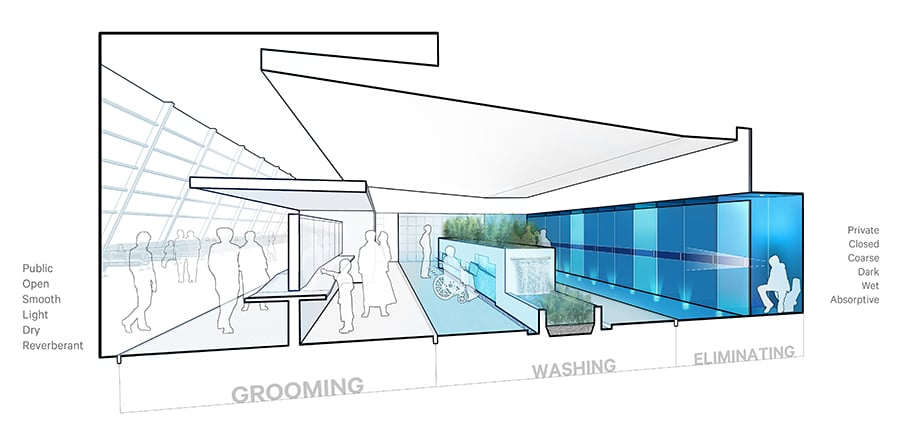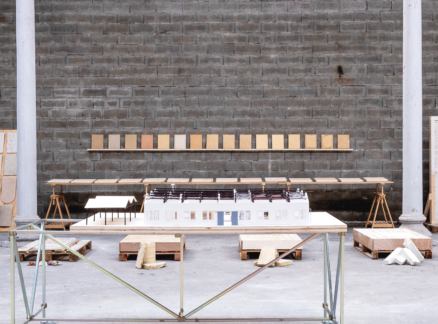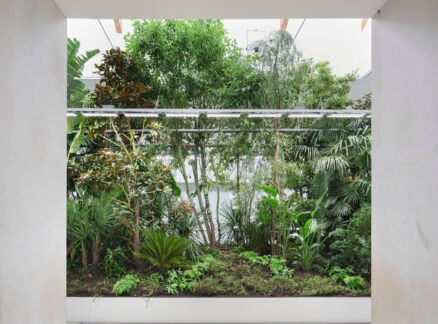
May 22, 2018
VIDEO: Why Gender-Neutral Bathrooms Matter
Architect and advocate Joel Sanders describes the debate emerging around gender-neutral bathrooms—and what role architects have to play.
When it comes to activism in architecture, the hurdles can be giant simply because buildings are complex and expensive. Sustainable design, affordable housing, vibrant public spaces—these are within reach, but only with extensive funding and political will. Gender-neutral bathrooms are different. Instead of a huge price tag, the headwinds are raising public awareness and figuring out a solution. This process cannot help but be controversial: the bathroom inescapably connects architecture to how society fundamentally views gender. However, the safety and equal treatment of a marginalized transgender community is at stake. While architects cannot avoid this debate, its ideas and proposed solutions haven’t always been fully articulated.
With that in mind, Metropolis talked to Joel Sanders, an architect intimately familiar with gender-neutral bathroom design. In addition to leading the New York–based firm Joel Sanders Architect (JSA) and teaching architecture at Yale University, Sanders is one of the key figures behind Stalled!, a cross-disciplinary research and advocacy group focused on this issue. (The Stalled! team also includes transgender activist and historian Susan Stryker and legal scholar Terry Kogan.) Most recently, Sanders and Stryker organized “Noncompliant Bodies: Social Equity and Public Space,” a symposium at the Yale School of Architecture that explored how the built environment could be designed more equitably for groups marginalized by their gender, disability, or race. The symposium’s program included bathrooms as well as museums and urban spaces—restrooms, as Sanders tells Metropolis, are just the tip of the iceberg when it comes to creating architecture not predicated on a gender binary.
What do you think? How should architects help craft a solution and raise awareness? Let us know in the comments section below.
You may also enjoy “Could the Restroom Become Public Space?“
Recent Viewpoints
Viewpoints
Sustainability News Updates for Q2 2025











